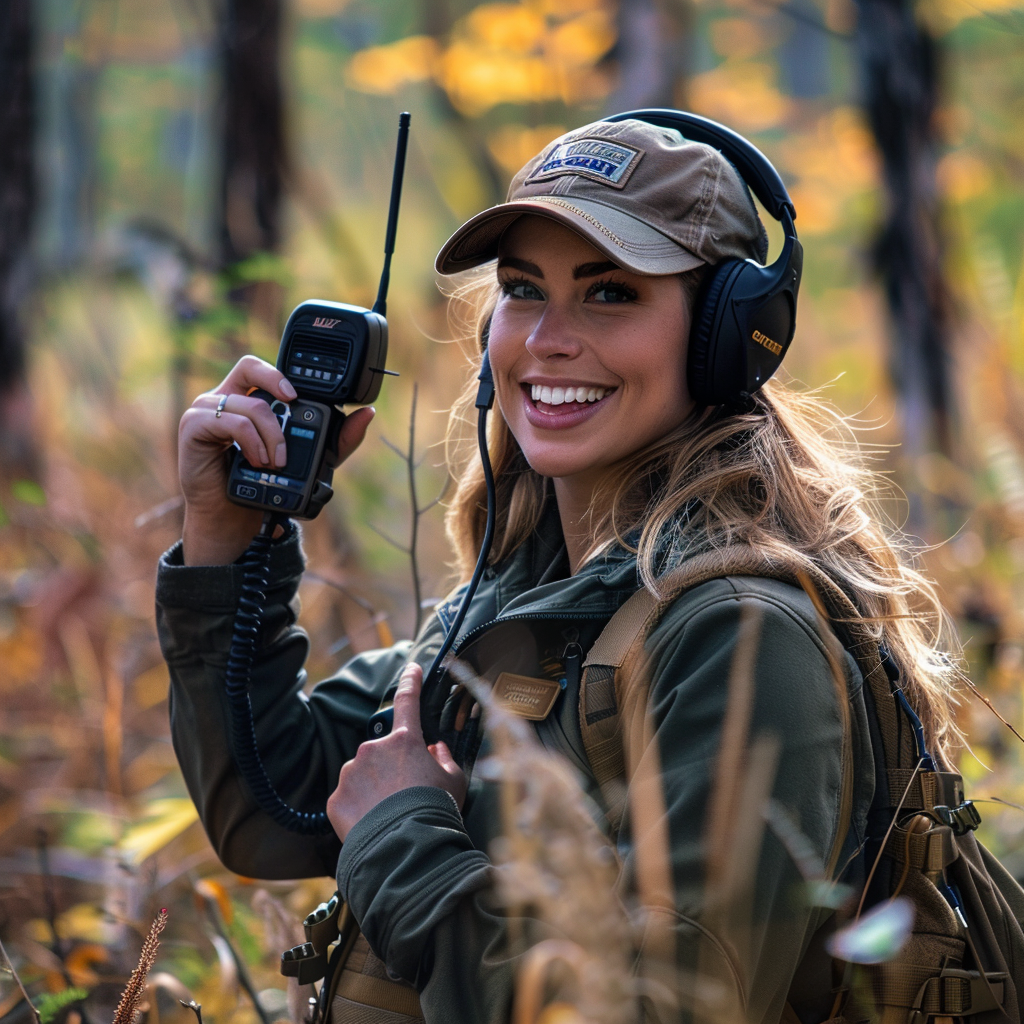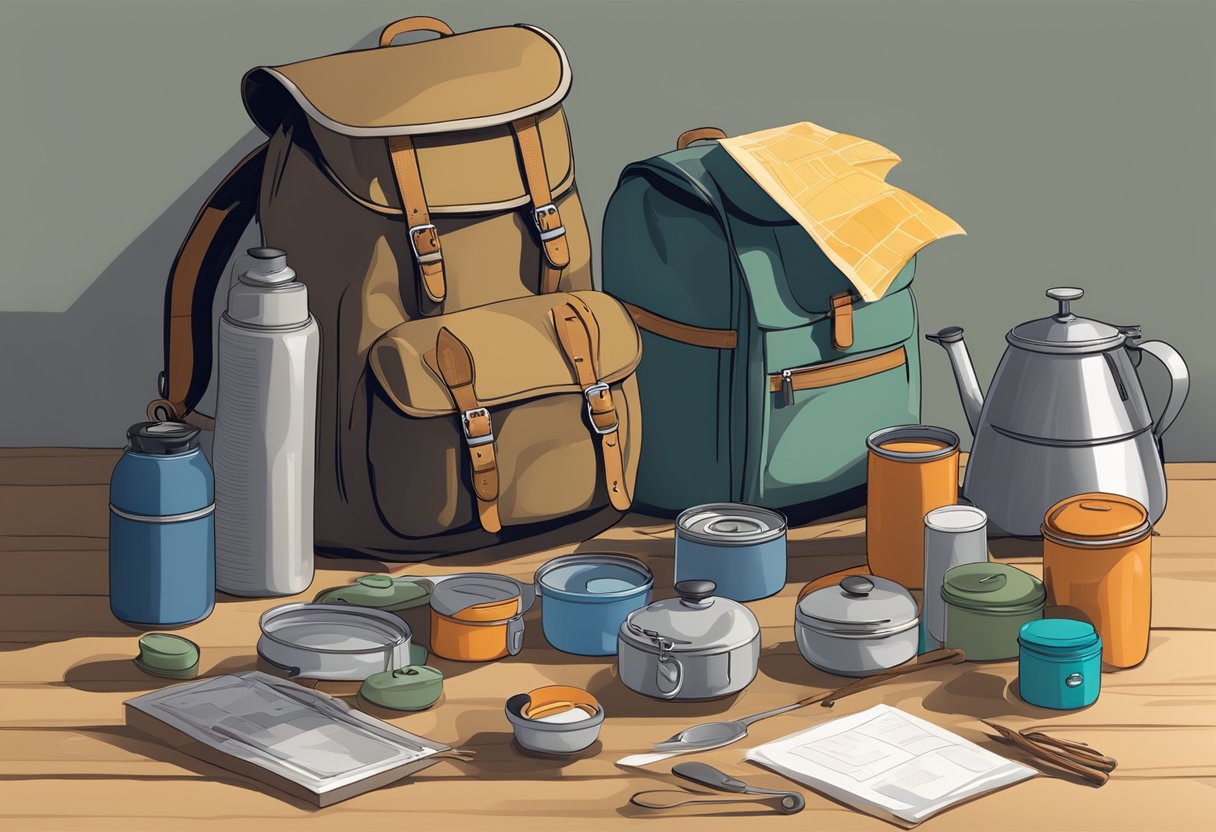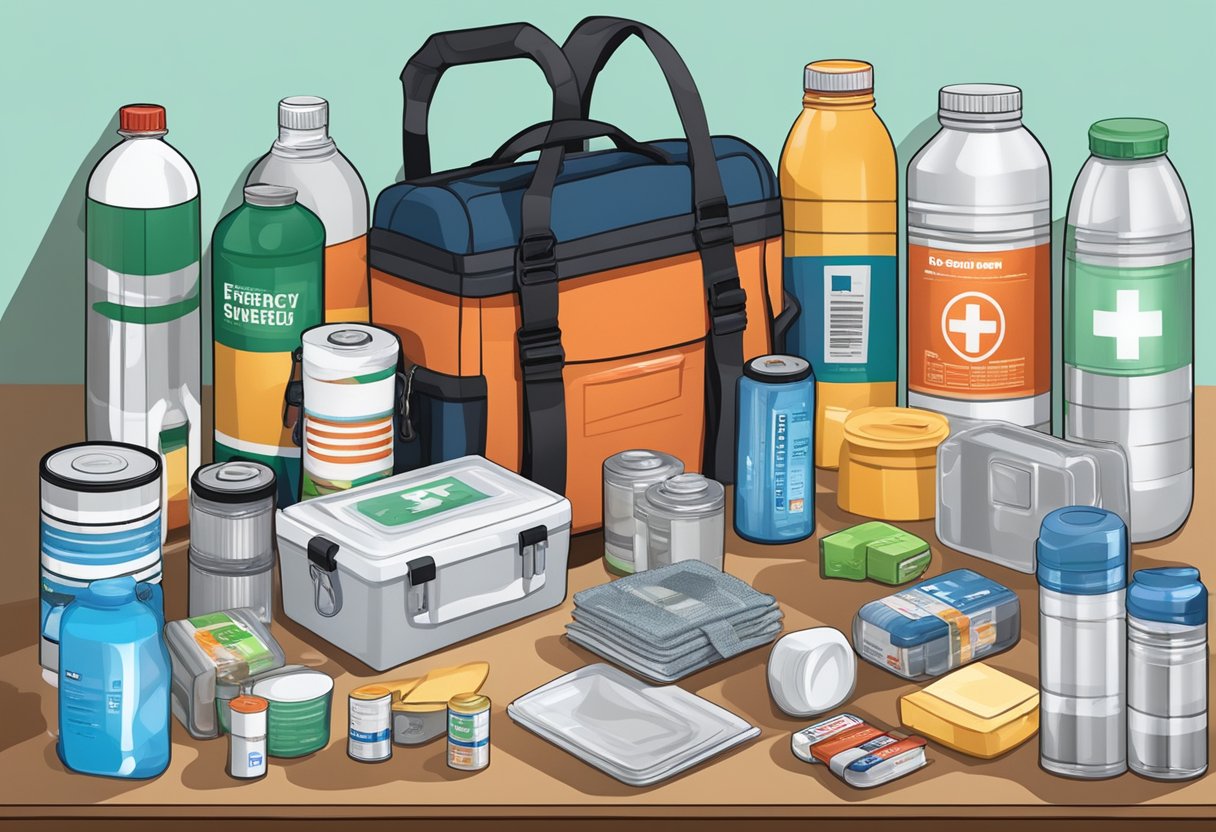Navigating Uncertainty with Preparedness: A Holistic Survival Blueprint
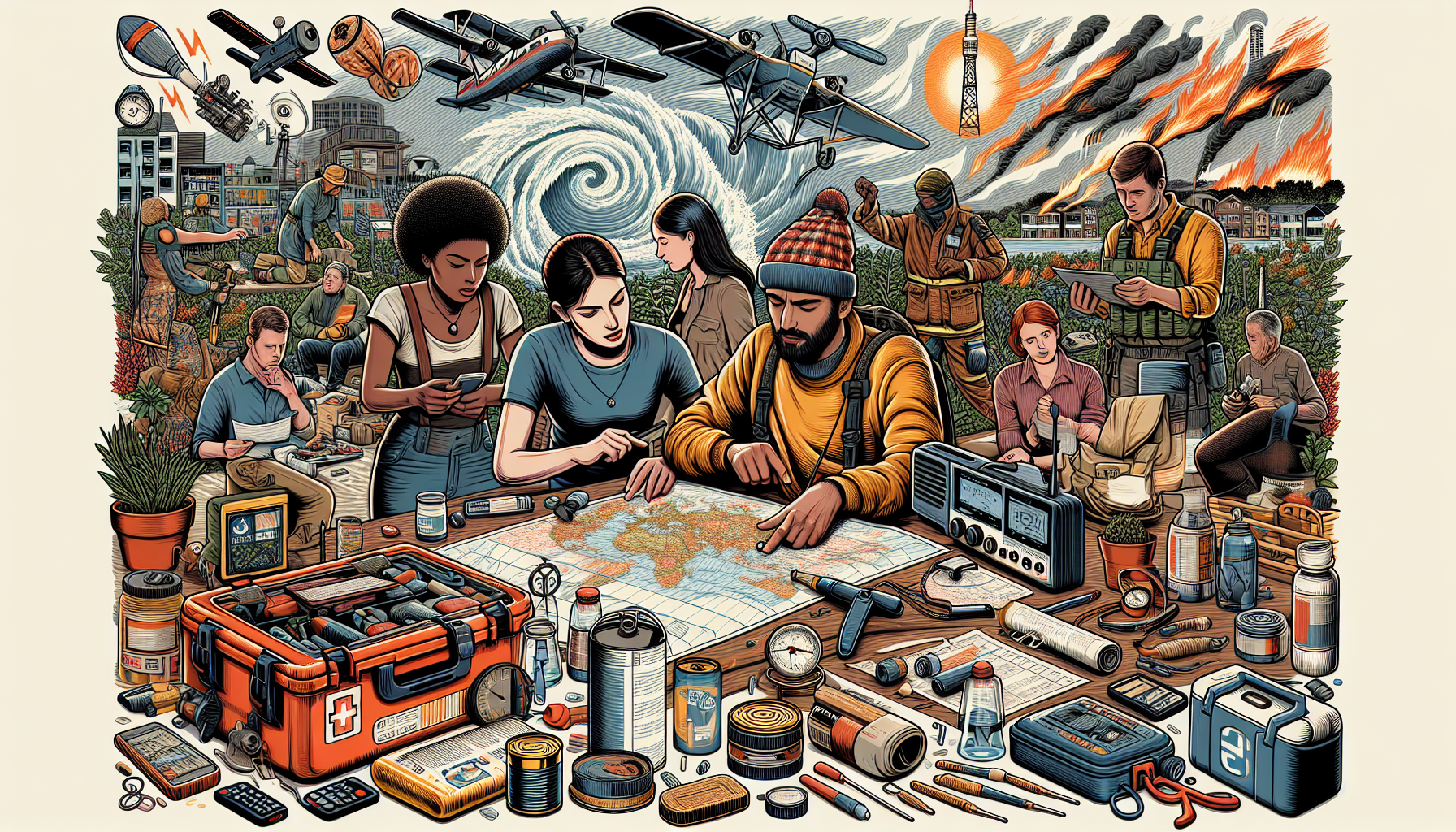
Welcome to Essential Prepper Blog Posts: Your Ultimate Survival Guide, where we delve into the vital world of prepping, equipped with the essential tools, insights, and skills needed to navigate uncertain times. As we navigate through an era of unpredictability and unforeseen challenges, the wisdom and knowledge provided by prepper blogs become an invaluable resource, guiding us towards preparedness and long-term resilience. This comprehensive guide aims to empower individuals through a friendly, accessible approach to essential prepping strategies, covering everything from survival gear essentials to sustainable living practices, preparing you for a range of potential disasters and crises. Join us in this journey towards self-sufficiency and security, as we uncover the power of preparation and the wealth of knowledge available through prepper blogs.
1. Why Prepper Blogs Are Essential
Survival 101: Why Preparation Matters
In our ever-changing world, being prepared for unexpected emergencies is not just a precaution; it’s a crucial life skill. Survival 101 presents the fundamental reasons why preparation matters, shedding light on the significance of readiness in the face of uncertainty. This friendly exploration serves as a reminder that having essential survival knowledge and resources isn’t about fear; it’s about empowerment. Understanding the basics of survival equips individuals with the confidence and capability to navigate through challenging circumstances, fostering a sense of security and self-reliance in the process. By exploring this topic, we aim to cultivate a positive approach to preparedness, emphasizing how it enables individuals to protect themselves and their loved ones while contributing to the overall resilience of communities in times of crisis.
The Role of Information: Knowledge is Power
Prepper blogs play a pivotal role in empowering individuals with invaluable knowledge, making them indispensable resources in times of uncertainty. By offering practical insights and essential tips, these blogs become vital tools for preparedness, turning information into actionable strategies for navigating emergencies. The friendly and accessible nature of prepper blogs fosters a sense of community, enabling individuals to share experiences, learn from experts, and collaboratively prepare for a range of potential crises. Beyond simply providing information, these platforms help to instill a proactive mindset, illustrating that preparedness is not just about stockpiling supplies; it’s about developing a skill set and mindset that allows individuals to effectively respond to and recover from unforeseen events. Knowledge truly becomes power through prepper blogs, as they equip individuals with the confidence and know-how to face emergencies head-on, promoting a sense of self-reliance and capable problem-solving.
2. Top 20 Must-Read Prepper Blog Posts
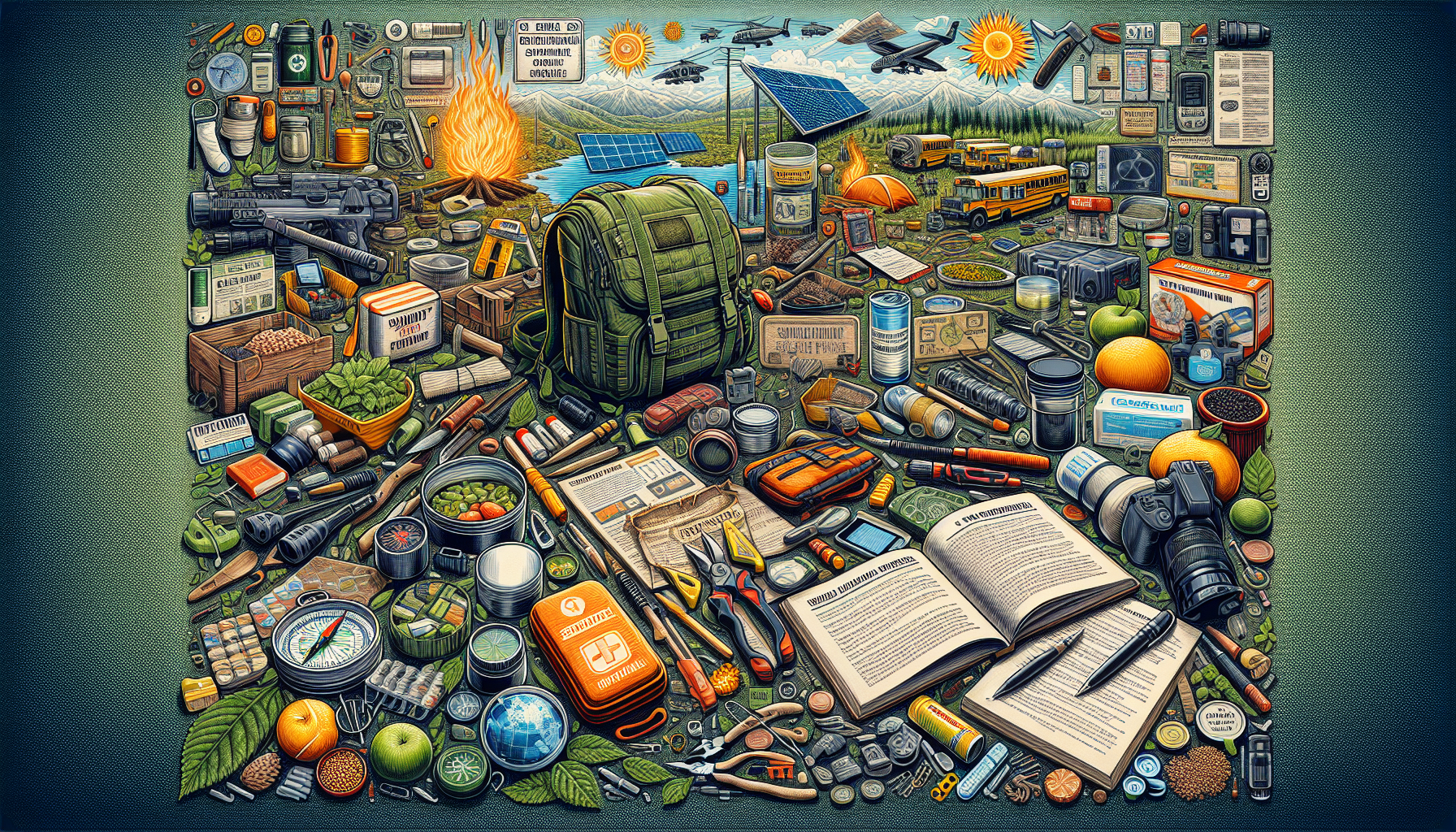
Embarking on a journey through the top 20 must-read prepper blog posts unveils an indispensable wealth of knowledge, offering insights and strategies essential for navigating challenging times. From survival gear essentials to sustainable living practices, these blog posts cover a wide array of topics crucial for emergency preparedness. Each post serves as a valuable tool in the prepper’s arsenal, providing a diverse range of information for individuals and families seeking to bolster their readiness in the face of unforeseen events. With a friendly and accessible tone, these blog posts present a comprehensive blend of practical advice, expert guidance, and real-life experiences, making them an essential resource for anyone looking to enhance their preparedness and resilience.
Survival Gear Essentials: What You Need to Know
When it comes to being prepared for emergencies, having the right survival gear can make all the difference. This in-depth exploration of survival gear essentials offers a friendly and comprehensive look at the must-have items that every prepper should consider. From multi-tools and first aid kits to emergency food supplies and communication devices, understanding the role of each gear piece provides individuals with the knowledge needed to build a well-rounded emergency kit. Integrating practical advice and expert insights, this content goes beyond a simple checklist, delving into the significance of each gear category and highlighting their potential impact in a variety of emergency scenarios. By learning about survival gear essentials, individuals can enhance their preparedness and feel more confident in their ability to navigate unexpected challenges with the right tools at their disposal.
Food Storage Mastery: Long-Term Nutrition Strategies
Exploring the realm of food storage mastery and long-term nutrition strategies offers a friendly and insightful journey into sustaining oneself during crisis situations. This comprehensive guide provides expert tips on efficiently storing food, devising meal plans, and ensuring long-term nutritional resilience. Understanding the nuances of food storage, such as proper rotation, packaging, and shelf life, equips individuals with the tools to build a reliable pantry that can sustain them through extended emergencies. Additionally, meal planning strategies are discussed, emphasizing the importance of balancing nutrition, variety, and caloric intake, essential for maintaining health and well-being during challenging times. By discovering these expert tips, individuals can gain the knowledge needed to create a food supply that not only nourishes but also brings a sense of reassurance and stability during crises.
Emergency Medical Preparedness: First Aid and Beyond
Delving into the realm of emergency medical preparedness goes beyond simply having a first aid kit; it embodies a friendly, holistic approach to health management during crises. This exploration offers indispensable insights into first aid essentials, the significance of well-equipped medical kits, and the value of emergency medical training. Understanding the fundamentals of first aid empowers individuals to respond confidently to injuries, providing invaluable assistance until professional medical help is available. Moreover, this content underscores the importance of assembling comprehensive medical kits tailored to individual and family needs, ensuring that essential supplies are readily available during emergencies. By learning about emergency medical preparedness, individuals not only gain the knowledge needed to address health concerns effectively but also foster a proactive mindset that can make a significant difference in critical situations. It’s about more than just products and procedures; it’s about building a foundation of health resilience within communities.
Communication Strategies: Staying Connected in Disasters
The ability to stay connected and informed during emergencies is essential for managing and overcoming crises. This exploration of communication strategies offers a friendly and comprehensive guide to understanding effective methods and tools for maintaining connectivity in challenging situations. From establishing communication plans within families to utilizing various technologies and platforms for widespread information dissemination, the importance of reliable and resilient communication becomes clear. This content not only introduces essential strategies for staying in touch but also emphasizes the role of communication in boosting morale and reducing anxiety during emergencies. By delving into these communication methods, individuals and communities can ensure that they remain informed, connected, and capable of organizing effective responses when facing unexpected circumstances, fostering a sense of unity and support that is invaluable during times of need.
Community Resilience: Building Support Networks
Community resilience stands as a pillar of strength during times of adversity, embodying a friendly, supportive network that fosters unity and aids in overcoming challenges. This comprehensive guide outlines the significance of community support and presents strategies for building resilient networks capable of withstanding and recovering from unforeseen events. By understanding the importance of community bonds and solidarity, individuals can develop a mutual sense of reliance and interdependence, creating a network that offers moral, emotional, and practical support during crises. This content delves into the power of collective action, highlighting the positive impact of mutual aid, collaborative planning, and resource sharing within communities. By exploring these strategies, individuals can play a proactive role in developing and maintaining a resilient community, ensuring that support systems are in place to uplift and assist each other during times of need.
3. Prepping for Unforeseen Disasters: A Comprehensive Approach
Natural Disasters: Mitigation and Preparedness
Understanding the nature of natural disasters and taking proactive measures for effective preparedness are crucial steps in mitigating their impact on communities. This comprehensive guide dives into the significance of proactive preparedness, emphasizing the need for communities to be equipped with essential knowledge and resources to respond to natural disasters. By gaining a thorough understanding of the potential threats posed by natural disasters such as earthquakes, hurricanes, and floods, individuals can implement measures that contribute to minimizing their impact. From creating emergency plans and conducting regular drills to ensuring structural reinforcement and fostering community awareness, this content explores the essential components of effective disaster mitigation and preparedness. Emphasizing the role of education and community involvement, this approach aims to instill a sense of capability and resilience within individuals, ensuring that they are better equipped to navigate through and recover from the aftermath of natural disasters.
Pandemics and Public Health: A Closer Look
Taking a closer look at pandemics and public health provides valuable insights into pandemic preparedness, considerations for public health, and measures to safeguard against potential health crises. This exploration sheds light on the multifaceted nature of pandemic preparedness, emphasizing the need for comprehensive planning, effective response strategies, and global cooperation. By delving into the intricacies of public health considerations during pandemics, individuals gain a deeper understanding of the importance of early detection, rapid response, and community resilience. Furthermore, the content emphasizes the significance of adopting prudent public health practices at both individual and community levels, highlighting the power of collective action in mitigating the spread of infectious diseases and safeguarding public well-being. Through this friendly and informative approach, individuals can equip themselves with the necessary knowledge and resources to contribute to larger-scale efforts in protecting public health and building resilience against potential pandemics.
Climate Change and Environmental Risks
Analyzing the impact of climate change and environmental risks leads to a better understanding of the diverse challenges that individuals and communities may face. This friendly exploration delves into the multifaceted implications of climate change, emphasizing the need for proactive mitigation strategies and the integration of environmental considerations into preparedness initiatives. By gaining insights into the influence of climate change on extreme weather events, natural resource availability, and ecosystem stability, individuals can begin to identify and address potential vulnerabilities within their communities. Furthermore, this content underscores the importance of fostering sustainable practices and promoting environmental stewardship as integral components of proactive prepping initiatives. By adopting a holistic approach that integrates climate change considerations into emergency preparedness, individuals and communities can work towards bolstering their resilience and reducing the impact of environmental risks.
4. Empowerment through Knowledge: Mastering Survival Skills
Mastering essential survival skills is about empowerment through knowledge, equipping individuals with the practical abilities and self-sufficiency necessary for facing challenging situations. This comprehensive guide aims to foster a friendly and accessible approach to building these crucial skills, providing insights into a range of survival techniques and strategies. From learning outdoor survival skills, navigation methods, and wilderness essentials to understanding self-defense and personal safety measures, individuals are empowered to enhance their readiness and self-reliance. This content underscores the value of being well-prepared, not just with supplies, but with the ability to adapt, innovate, and navigate through unexpected scenarios, fostering a sense of confidence and capability in the face of adversity.
Learning essential outdoor survival skills, navigation methods, and wilderness survival strategies opens the door to self-sufficiency and preparedness in the face of outdoor challenges. This comprehensive guide offers a friendly approach to mastering crucial techniques, including shelter building, fire starting, and foraging, empowering individuals to thrive in the wilderness. By understanding navigation methods such as map reading, compass use, and natural orientation cues, individuals can confidently traverse diverse terrains, ensuring their safety and security. In addition, uncovering wilderness survival strategies equips individuals with the knowledge needed to handle emergencies and unexpected situations, fostering a sense of empowerment and capability when venturing into the great outdoors.
Self-Defense and Security Measures
Understanding self-defense techniques, home security, and personal safety measures provides individuals with a sense of empowerment and confidence in emergency scenarios. This comprehensive guide offers friendly insights into a range of strategies such as basic self-defense moves, situational awareness, and securing one’s living space, all contributing to a proactive approach to personal safety. By delving into self-defense techniques, individuals can develop the skills needed to protect themselves and others, fostering a sense of assurance and resilience. Moreover, exploring home security measures equips individuals with the knowledge to fortify their living environment, creating a safe and secure space that supports overall well-being. Embracing personal safety measures not only safeguards individuals during emergencies but also contributes to building a resilient and capable community, prepared to address a range of potential threats.
Water Sourcing and Purification: Clean Water Solutions
Understanding how to source and purify water is essential for ensuring access to clean and safe water, particularly in emergency settings. This guide provides a friendly and informative approach to comprehending the various methods of water sourcing, purification techniques, and the criticality of having access to clean water during emergencies. By addressing the importance of water sourcing, individuals can learn how to identify and collect water from natural sources, as well as implement effective rainwater harvesting methods, ensuring a sustainable supply. Moreover, delving into purification methods equips individuals with the knowledge to purify collected water, utilizing techniques such as boiling, chemical treatment, and filtration, creating a reliable source of clean water for drinking and sanitation needs. Embracing clean water solutions not only ensures immediate access to a vital resource during emergencies but also contributes to overall well-being and resilience in challenging circumstances.
5. Sustainable Living: Prepping for Long-Term Resilience
Exploring sustainable living practices not only fosters self-sufficiency but also cultivates long-term resilience in the face of enduring challenges. This comprehensive guide offers a friendly and accessible approach to understanding and implementing sustainable living strategies, such as renewable energy adoption, waste reduction, and ecological stewardship, all pivotal for creating a self-sustaining lifestyle. By embracing sustainable living practices, individuals can reduce their environmental impact, conserve resources, and ensure long-term viability in the face of uncertainty. Furthermore, by integrating resilience strategies such as food production, off-grid living, and conservation efforts, individuals can fortify themselves against a range of potential challenges, fostering a sense of self-reliance and adaptability in the process. Embracing sustainable living not only promotes personal well-being but also contributes to creating a more resilient and environmentally conscious community, capable of withstanding and recovering from a variety of adversities.
Off-Grid Living: Harnessing Renewable Resources
Discovering the advantages of off-grid living takes individuals on a journey toward self-sufficiency and sustainable resource management through the utilization of renewable energy sources. This comprehensive guide provides a friendly exploration of off-grid living, shedding light on the benefits of harnessing renewable resources such as solar power, wind energy, and sustainable water management. By embracing off-grid living, individuals can reduce their environmental footprint, gain independence from traditional utility systems, and create a lifestyle aligned with sustainable principles. Furthermore, by incorporating renewable energy sources into daily living, individuals can foster long-term self-sufficiency, resilience, and environmental consciousness, ensuring a sustainable and eco-friendly approach to resource management. Embracing off-grid living not only promotes personal freedom and sustainability but also contributes to overall environmental conservation and resilience.
Food Independence: Gardening and Agriculture
Gardening and agriculture provide essential insights into achieving food independence and sustainable, self-reliant living. This comprehensive guide offers a friendly approach to understanding the significance of cultivating crops, raising livestock, and embracing sustainable food production. By exploring gardening and agriculture, individuals can gain practical knowledge about growing fruits, vegetables, and herbs, as well as raising livestock for dairy and meat, fostering self-sufficiency and resilience. Additionally, integrating sustainable farming practices enables individuals to reduce their environmental impact, ensure food security, and support local ecosystems. By embracing gardening and agriculture, individuals not only achieve food independence but also contribute to a more environmentally conscious and self-reliant community, capable of withstanding a range of challenges while promoting overall well-being.
Economic Preparedness: Financial Resilience
Economic preparedness is pivotal for fostering financial resilience and managing resources effectively during challenging times. This comprehensive guide provides a friendly approach to understanding financial preparedness, enabling individuals to navigate economic uncertainties and effectively manage their resources. By exploring economic resilience, individuals can gain insights into creating emergency funds, managing debts, and developing sustainable financial habits that contribute to overall stability. Additionally, understanding strategies for prudent budgeting, investing, and diversifying income sources empowers individuals to build a robust financial foundation capable of withstanding unexpected financial burdens. Embracing economic preparedness not only promotes financial security but also contributes to overall well-being and resilience in the face of potential economic challenges.
- Economic preparedness involves:a) Creating emergency funds and managing debt
b) Investing in high-risk stocks only
c) Ignoring budgeting and debts
- Sustainable living practices include:a) Using renewable energy
b) Water wastage and excessive resource use
c) Overreliance on non-renewable resources
- Off-grid living primarily focuses on:a) Utilizing renewable energy resources
b) Relying solely on traditional utilities
c) Ignoring environmental impact
- a, 2. a, 3. a

